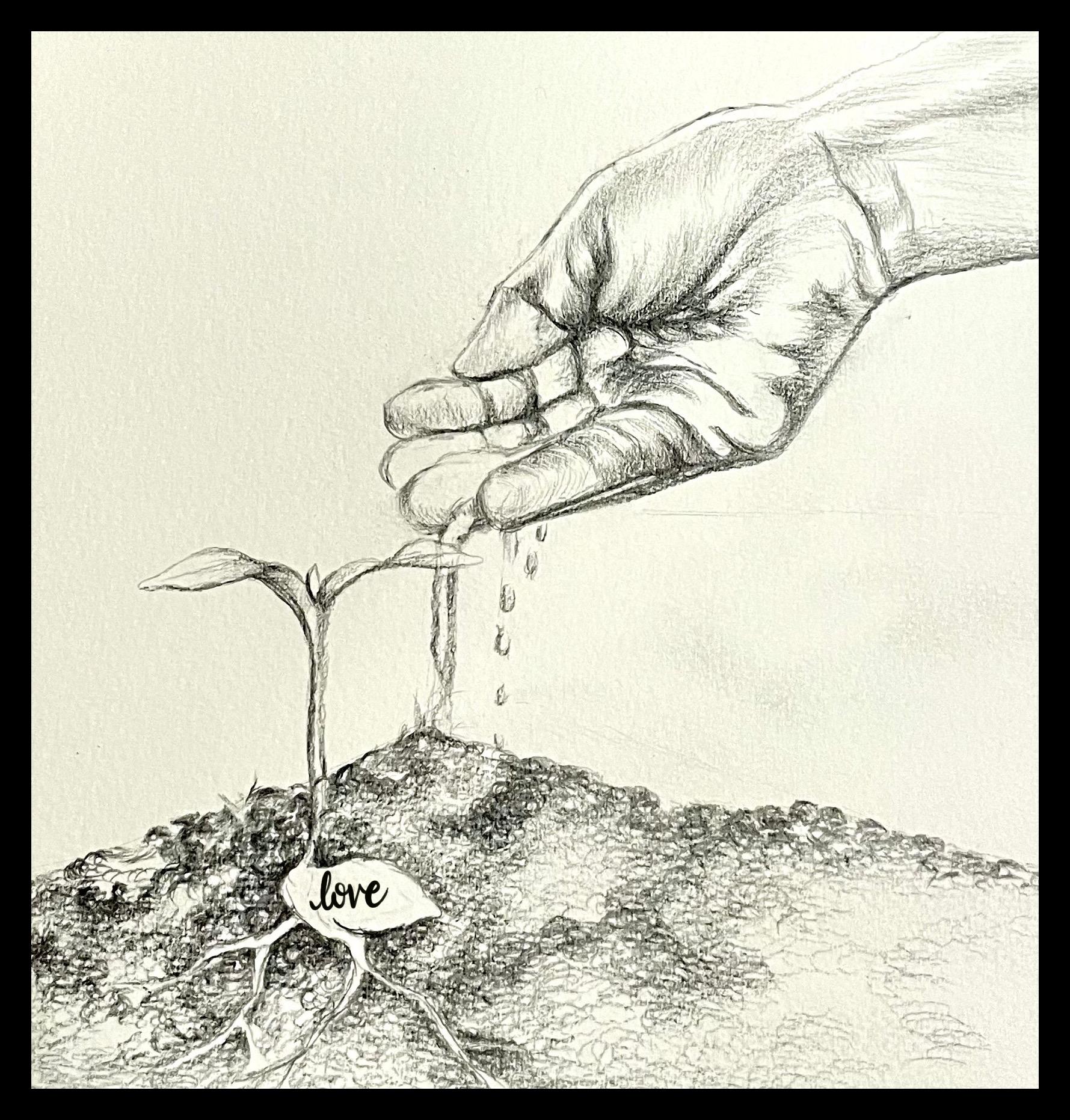Love Is Not A Feeling, It's An Ability

IMAGE OF THE WEEK
We are grateful to Rupali Bhuva for offering this hand-made painting for this reading.

bell hooks: It fascinates me that while we are so obsessed with romance, many of us are turned off by the practice of love.
When you tell someone that there’s really a practice—a way that many of us, especially those from dysfunctional backgrounds, can learn what it is to love—they are hesitant to fully accept that. Sharon, when you express your conviction in our innate capacity to love, I’m not sure many people really believe in that.
Sharon Salzberg: Well, why would we, really? (laughter) There’s a line from an old Steve Carell movie, Dan in Real Life: “Love is not a feeling. It’s an ability.” [...] Love is inside me. Other people might awaken it or threaten it, but as a capacity, it’s mine. That was incredibly liberating and also a little daunting. Because—and here’s the big question—if it’s an ability, does that mean it’s my responsibility to try to cultivate it, even in difficult circumstances?
bell hooks: Anytime we do the work of love, we are doing the work of ending domination. In a culture of domination, it’s extremely hard to cultivate love or to be love. At this moment in our nation, there’s so much disrespect afloat. Respect comes from a word meaning to look at. Right now, we are not looking at one another with loving-kindness, with compassion. [...]
These days, I feel fear and uncertainty in my relationship to strangers. So I struggle every day now with how to love the stranger. How do I love people who are beaming a lot of hate in my direction? That’s a really crucial national question right now. How can we return ourselves to a place of loving-kindness?
Sharon Salzberg: [...] Over the years that I’ve taught loving-kindness, I’ve encountered many people who are skeptical about the whole thing. “If I were to develop a more loving heart,” they think, “I’d have to give more money, I wouldn’t take a stand, I wouldn’t protect myself, I’d just sort of smile.”
If we think that’s what love means, what a degraded notion of love we’ve come to! There’s something empowering in recapturing the word “love” as something strong and unafraid.
bell hooks: That’s part of the power of Martin Luther King Jr. that we’ve kind of lost. He talked about love as a transformational source. It’s come down to us as a sort of a watered-down version of “Love your neighbor as yourself,” not as an empowering force that changes everything. I love Dr. King’s book Strength to Love, in which he talks about the courage it takes, in the midst of domination, to decide to love.
That’s a commitment many of us would rather not deal with. How do we make that commitment? How do we start to love? We’re in such a climate of hate right now. We’re seeing diminishing acts of kindness and love because fear of the stranger has been so deeply cultivated in us. Breaking down that us-and-them binary is part of the work of love. [...] Our innate capacity to love is like a seed in the soil. What do we need to do to activate that seed, to make it capable of blossoming? It’s not enough just to know that the seed is in the soil.
Sharon Salzberg: Yes. Without our effort, it will not grow and spread. But I agree that we have unguarded moments of profound connection and they’re not strategic. They don’t even have to be with a human being or fall within the standard picture of a relationship. We can love life or nature. We can be struck with gratitude and awe, have great moments of connection, without another person involved.
It’s true we can be harsh judges of others and of ourselves. We always need to look at both the stories others tell about us and the stories we tell ourselves. Part of what makes us feel incomplete is not noticing that we are loving people, that we have great capacity to love. Love is not a scarce resource.
Excerpted from here.
SEED QUESTIONS FOR REFLECTION: How do you relate to the notion of our capacity to love being like a seed in the soil, needing effort to grow? Can you share a personal story of a time you were able to discover love as an ability in yourself, not beholden to your circumstances? What helps you return yourself to a place of loving-kindness even when hate is beamed in your direction?